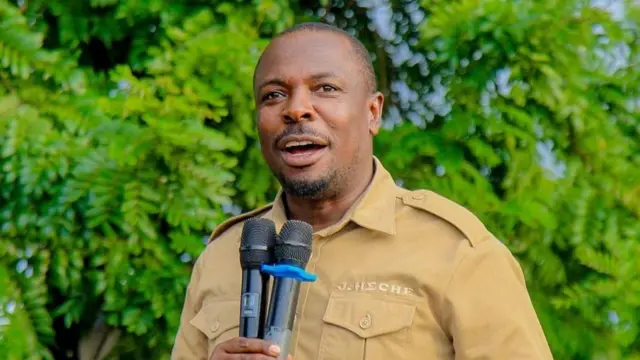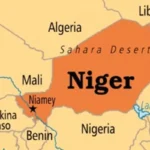Tanzania’s political tension has deepened ahead of next week’s general election following the arrest of John Heche, the deputy chairperson of the main opposition party, Chadema. The arrest adds to growing concerns about shrinking democratic space and the silencing of dissenting voices as President Samia Suluhu Hassan seeks a second term in office.
Heche was reportedly detained on Wednesday while attempting to attend the treason trial of Chadema’s imprisoned leader, Tundu Lissu, at the High Court in Dar es Salaam. According to a statement from Chadema, authorities are allegedly orchestrating a plan to arrest and detain senior opposition figures until after the election, scheduled for 29 October.
Witnesses say the outspoken politician was apprehended as he arrived at the court premises. The party further claims that Heche was transferred to Tarime, a northern town located more than 1,300 kilometers from the capital, in what they described as a deliberate attempt to isolate and intimidate opposition members.
The police have yet to issue an official statement regarding the arrest, but this marks Heche’s second detention within a week. Just days earlier, he was held at the border while attempting to cross into Kenya, reportedly to attend the burial of former Kenyan Prime Minister Raila Odinga. Authorities accused him of attempting to cross the border illegally, a claim Chadema strongly denies.
The arrest comes amid heightened public outcry over the disappearance of Humphrey Polepole, a former Tanzanian ambassador and vocal government critic. His family reported that he was abducted from his home in Dar es Salaam on 6 October after signs of a violent struggle were discovered, including a broken door and pools of blood.
President Samia Suluhu Hassan, representing the ruling Chama Cha Mapinduzi (CCM) party, is contesting her first full-term election since assuming power in 2021 following the death of former President John Magufuli. Initially celebrated for promoting political openness and dialogue, her administration is now under fire for what critics describe as a return to authoritarian tactics.
Chadema, Tanzania’s largest opposition party, has been banned from participating in the upcoming elections, and its leader, Tundu Lissu, has been in detention since April on treason charges. Similarly, the candidate of the second-largest opposition party, ACT-Wazalendo, Luhaga Mpina, was recently disqualified from the race, leaving only minor party contenders to challenge the incumbent.
Observers fear that the upcoming polls will be conducted in an environment marked by intimidation, arrests, and limited political competition. As tensions rise, international human rights groups are urging Tanzanian authorities to ensure transparency, fairness, and respect for fundamental freedoms ahead of the vote.
The unfolding political drama signals one of the most turbulent pre-election periods in Tanzania’s recent history, raising questions about the future of democracy in one of East Africa’s key nations.













Leave a comment